1989 Lincoln Town Car Signature Series: Last Call for Opulence
One of the cars I most miss in today’s lineup of mostly trucklike new vehicles is the Lincoln Town Car. For most of my life, they were there—as personal cars, as limos, as the bad guys’ cars on TV and in movies. I’ve always loved Lincolns. My Grandpa Bob drove them for decades before I was born, and as a kid I well remember riding in the back seat of his navy blue ’77 Mark V and peering through the oval opera window in the C-pillar. One might say I was preordained to love them.

And it always seemed a given that the big, luxurious Town Car sedans would always be available. I remember about 15 years ago having a discussion with my Uncle Dave about how there really were only three truly distinctive new cars at that time: Volkswagen’s New Beetle, the Jeep Wrangler, and the Lincoln Town Car. Most everything else faded into the background.

Today, all that’s left is the Wrangler! No more Beetles and no more Town Cars. And the world is just a little more drab as a result. Indeed, Lincoln has since deleted ALL sedans from its line, despite having two excellent choices in modern luxury in the now-departed MKZ and Continental. But I’m digressing. Time to get back on track.
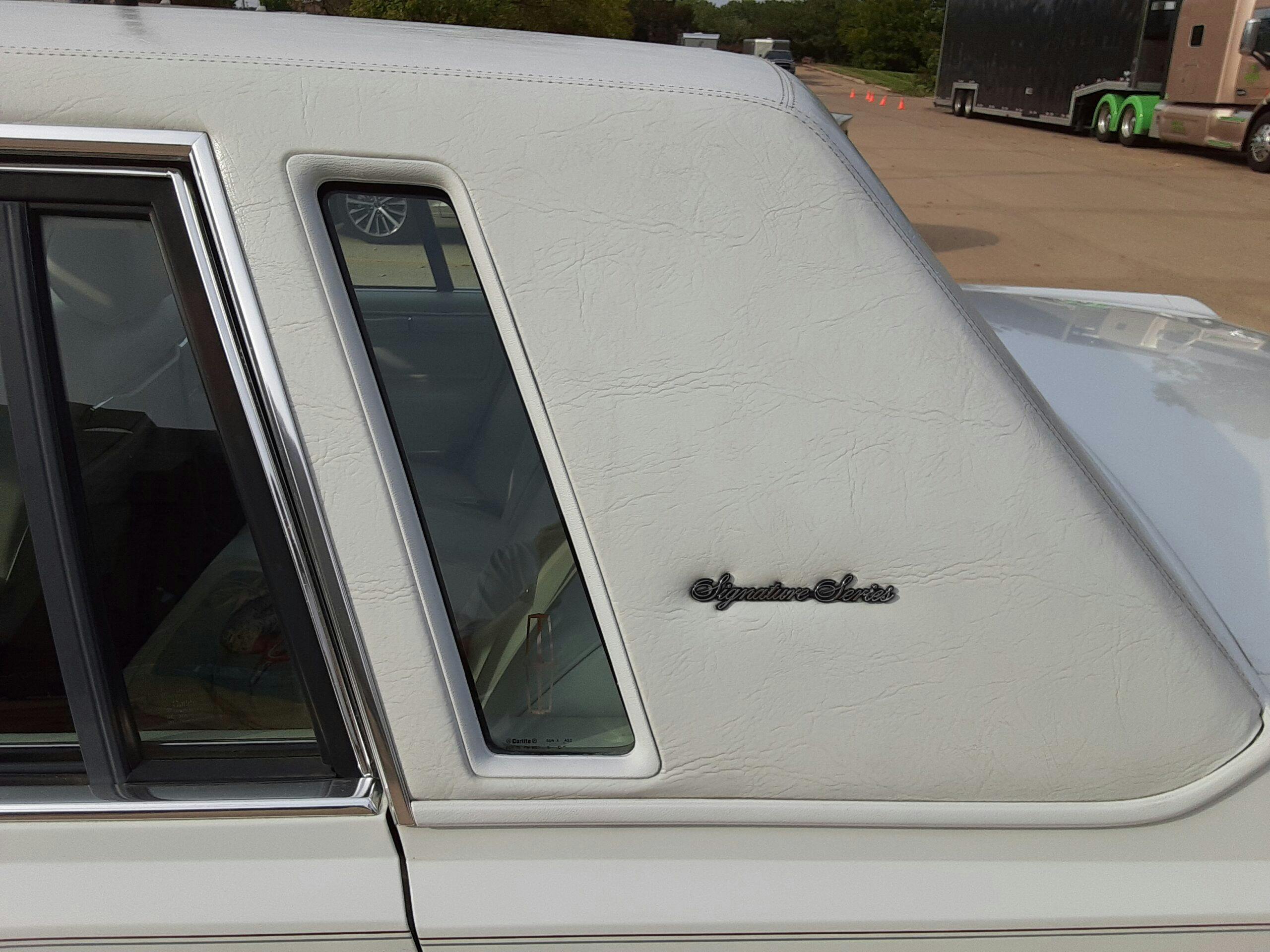
The 1989 Town Car was the end of a lot of traditional cues, though the redesigned 1990 model was a fine car in its own right. Indeed, if I didn’t already have my 2004 Town Car Ultimate, I’d love to find a nice 1995–97 Cartier to keep forever, having driven many as lightly used, late-model cars. But 1989 was the last year for the landau top—or “coach roof,” as Lincoln called it—complete with opera lamps on the B-pillar, the last year for genuine wire wheels, and all those cool little chrome accents and details, inside and out. And the bladed front fenders!
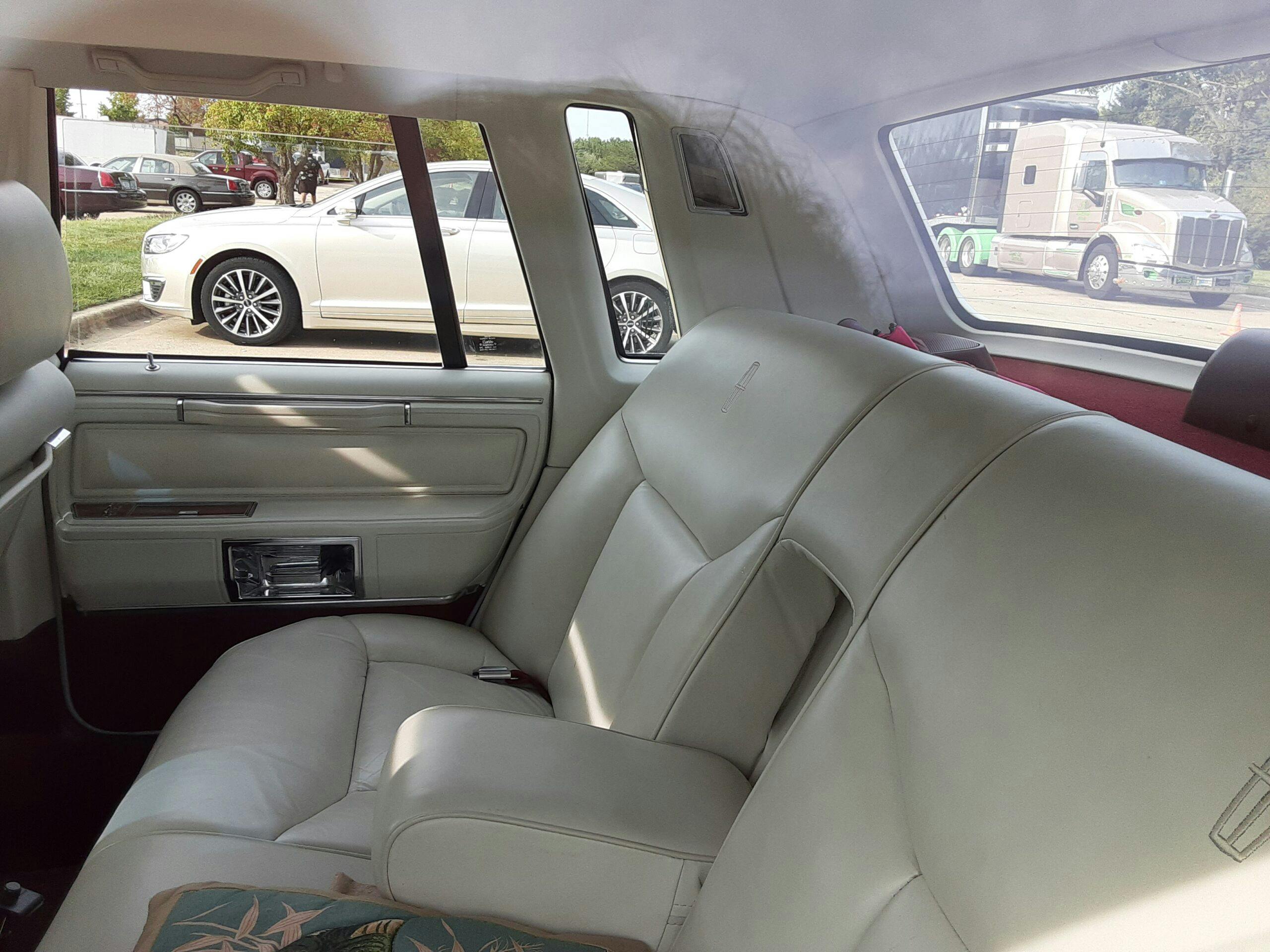
Just doing a casual walkaround of these cars, you will note all manner of Lincoln ornamentation: stand-up hood ornament, crests in the opera windows, embroidered on the seats, accenting the headlamp bezels. There was also a factory full carriage roof option, turbine alloy wheels, lacy-spoke alloy wheels, and wire wheel cover options. Plus a power moonroof.

And these were big cars for their time, though they are eclipsed by the previous 1975–79 Town Cars and Continentals. But today, next to Malibus, Camrys, and such, they look big. Overall length was 219.2 inches, with a 117.3-inch wheelbase. It was available as a sedan only, the coupe having disappeared after the 1981 model year.

The 1989s were much the same as the ’85s, when the original new-for-1980 bodyshell got a mild “aero” facelift, with more flush front and rear bumpers, a new grille, and revised, sloped rear tail treatment.

The ’89s can be identified by the new “Lincoln” logos on the lower right side of the grille and the trunk lid, replacing the block-style font that had been seen on ’88s, and indeed, on Lincolns going back at least to the mid-’70s.

A total of 128,533 were built for the year. Three trim levels were offered: the Town Car for $25,205 (about $63,079 today); the Signature Series, which added the floating-pillow style seating as seen here, among other finery, for $28,206 ($70,589); and the top-of-the-line Cartier Designer Series, available only in Silver Frost Clearcoat Metallic over Pewter Clearcoat Metallic, for $29,352 ($73,457).

All Town Cars, regardless of trim or equipment level, had the tried and true 302-cubic-inch V-8 under the hood, with a 4.00 x 3.00 bore and stroke and 150 horsepower. Other Lincoln models available in ’89 were the Mark VII luxury coupe, available in Bill Blass and LSC versions, and the V-6, front-wheel-drive Continental.

But the Town Car reigned supreme in sheer size.—and popularity, as total production of Mark VIIs and Continentals that year were 29,658 and 57,775, respectively.
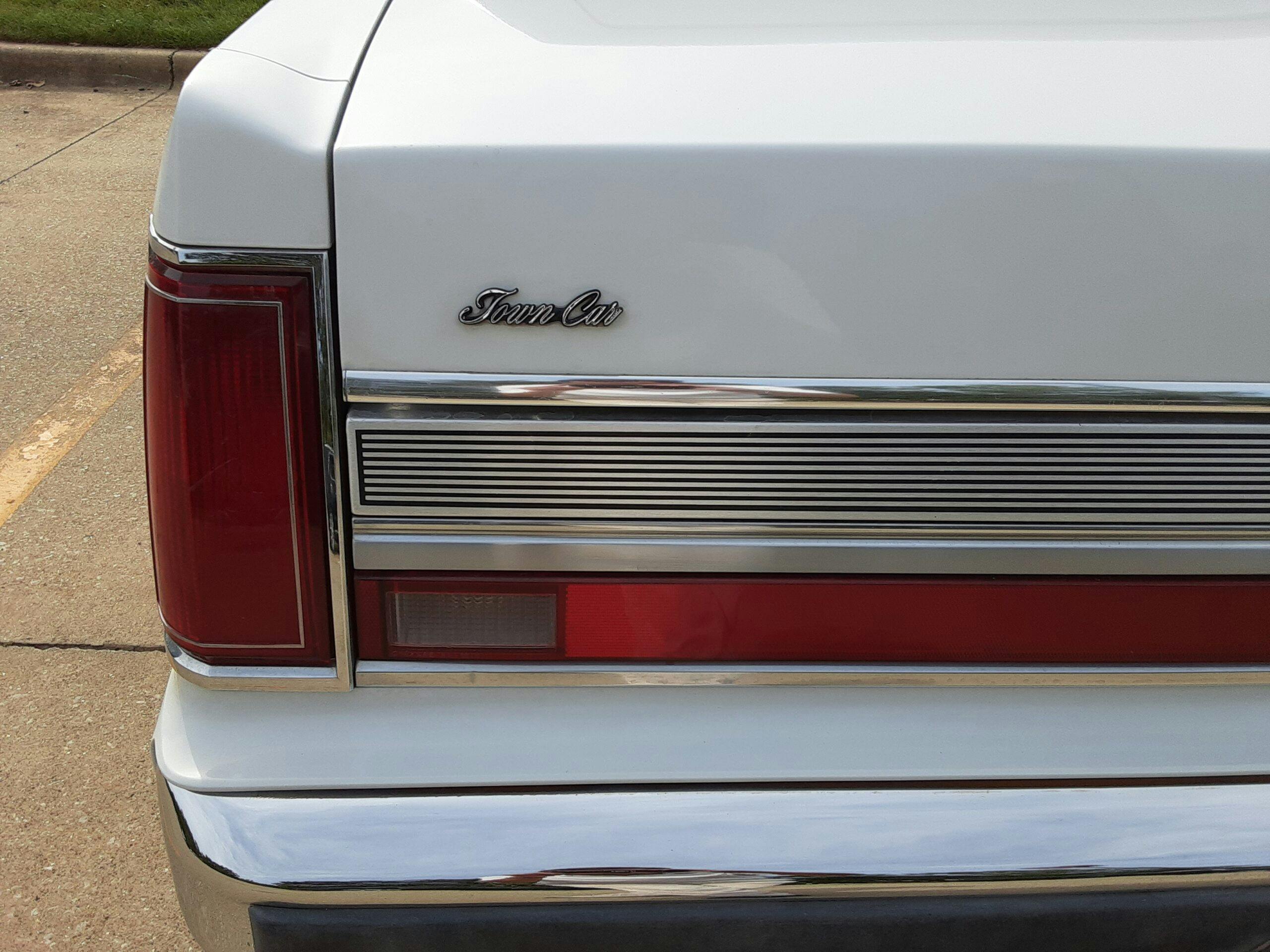
There were lots of color choices too, as in 1989 people actually bought cars in colors other than black, gray, and silver. Selected choices included Bright Currant Red, Sandstone, Rose Quartz, Pastel Adobe, Twilight Blue, Cinnabar, and Arctic White, as seen on today’s featured car.

Speaking of, this car was seen at the LCOC Mid America meet in Springfield, Illinois, last fall. It was a great show, and I took far more pictures than strictly needed. I’ve already written about the ’83 Mark VI Pucci Designer Edition that was also at this show, and I’ll almost certainly be writing up others from this event in the future.

This car wasn’t strictly in the show, as it was in the general parking and not on the show field, but it immediately caught my eye with its triple-white color scheme (with the fantastic red dash and carpeting matching the white leather inside) and factory optional, genuine wire wheels. It even had the moonroof.

Another reason I’m attached to these cars, and the ’89s in particular, is I remember my grandmother taking me to South Park Lincoln-Mercury back and my getting brochures on the Town Car and Continental. I still have both brochures today. In fact, I used the very same brochure I got in ’89 while writing this article.
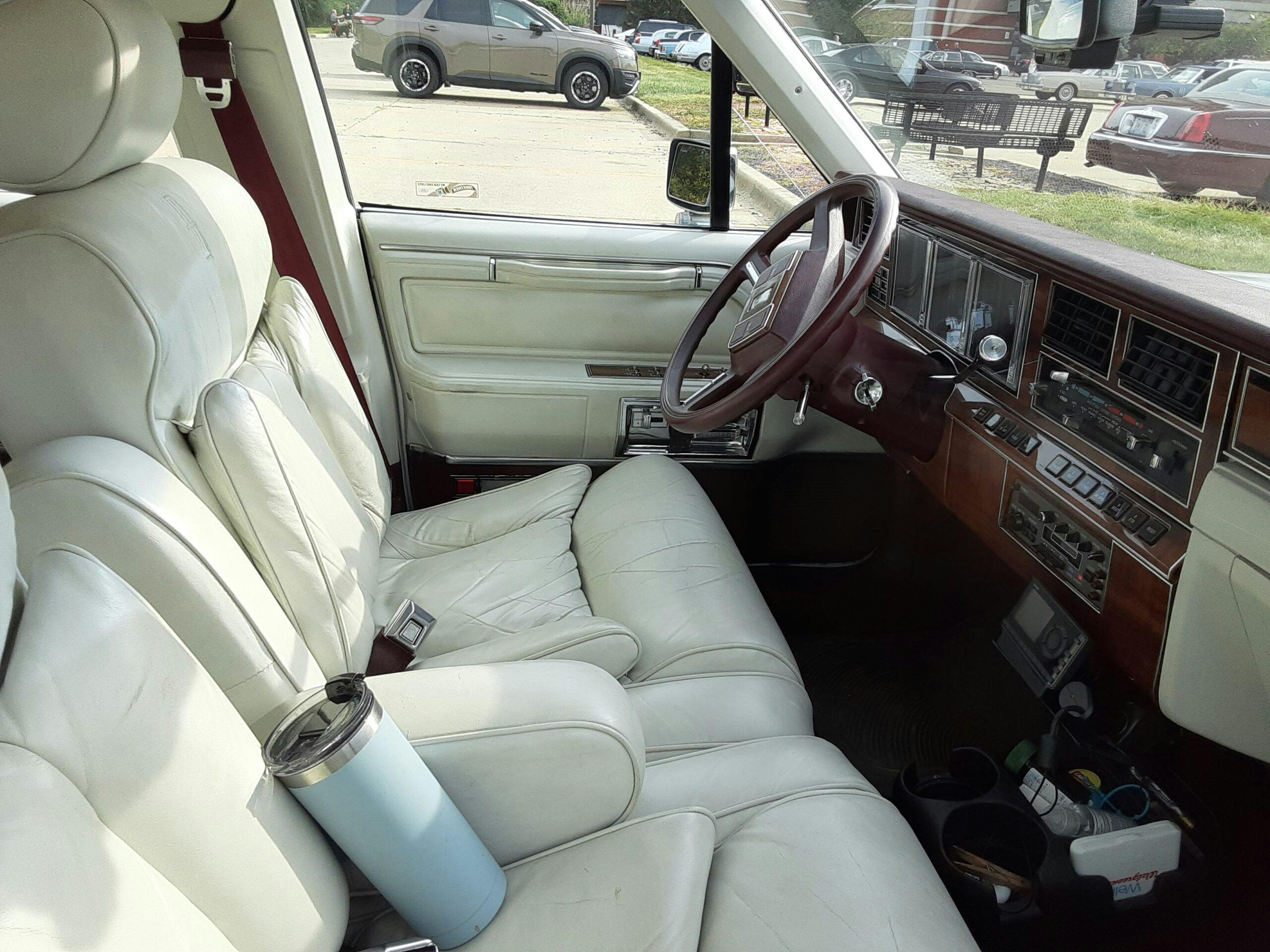
My grandparents never did get a Town Car of this generation, but they did have a Rose Quartz Metallic 1987 Continental—the one with the bustle-back styling. And a family friend, Dick McCarthy, had one of these, an ’86 Signature in silver-blue metallic with a navy coach roof and interior. He drove it for years, until he finally replaced it with a gunmetal gray ’95 Town Car Executive in about 1997. I even drove that car once, at a company event in Springfield.

It was about 20 years ago, and I was helping Jerry Morescki with the ICC booth at the trade show. Dick came down too (he was involved with the company as well; indeed, he and my grandfather got it started), and one night we all went out to Gallagher’s, a supper club not far from downtown. And the hotel? The Crowne Plaza, where the LCOC meet was held! It was de ja vu! In a great way!
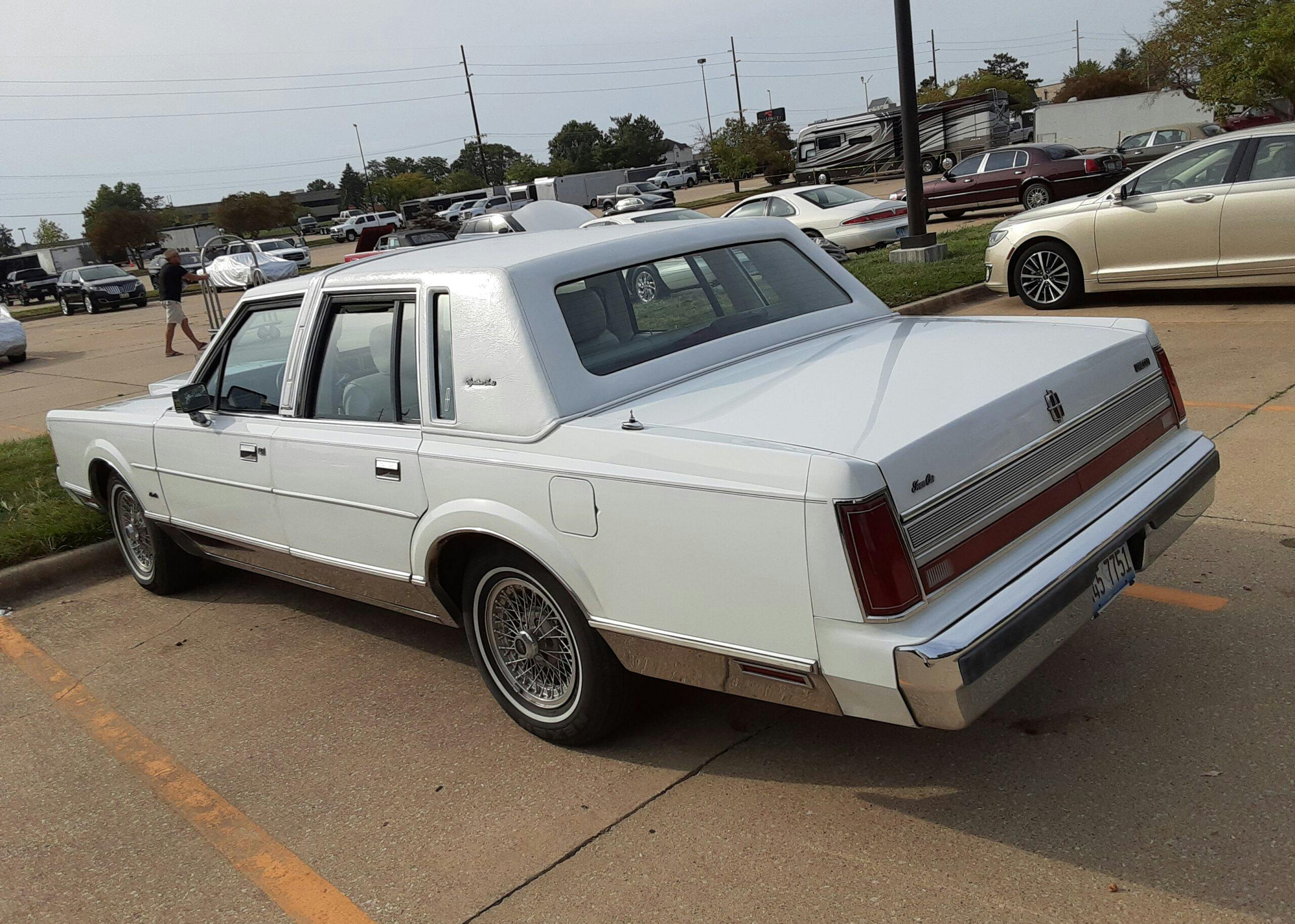
***
Check out the Hagerty Media homepage so you don’t miss a single story, or better yet, bookmark it. To get our best stories delivered right to your inbox, subscribe to our newsletters.
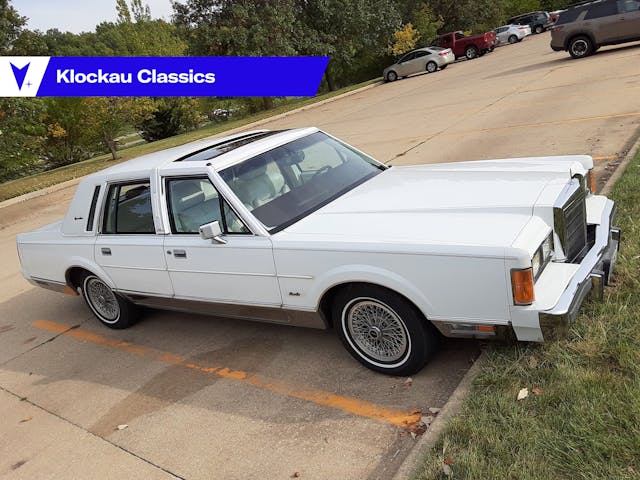


Never a fan of the boxy cars. The next model had much better flow to it.
So true. This style was a gaudy box, compared to the classy restyled 1990.
I was ok with these. They were very comfortable but I do like the later ones better. I would agree the styling got better.
Better than any gm POS.
I would have to say I’m a much bigger fan of the 90’s era Town Cars. But that’s because I grew up with them.
I dream of owning a black 1997 TC. It takes me to a very happy place even to think about it.
Thankfully I own a Panther car and love it.
Just know that from ’96 on Ford put plastic intake manifolds on the 4.6. It a coin flip if it fails, some never do, some do at any miles. There’s tons of info. about it online.
The owner of the company I went to work for in 1989 as a Sales Engineer in the machining/casting business just took delivery of that identical car right before I went to work for him. Rode to lunch and customers many times in that big white TC. Great car–and great guy to work for. Too bad both are gone!
I own a 1989 Lincoln Town Car Signature series. It’s silver with blue velvet interior. I am the second owner and I must say that the town car’s ride is the best.
I own a ’86 Lincoln Signature series Towncar. I still love it! Rides smooth. I was surprised when I found out it only has a 150 hp. It seems like it has a lot more power than that. I bought it in about 2000 it had been in one family for three generations. I think it is a beautiful car. I am sad that Lincoln quit making cars. Mine is maroon.
Your 302 makes 270 lbs of torque. A 2011 4.6 makes 220 hp & 287 lbs. of torque.
Easiest way to identify the 89 is the front signal / parking light lenses. 1989 was the only year they were amber. A friend who sold Lincolns back then told me when the 1990 model hit their showrooms their traditional Lincoln buyers didn’t care for the new design and preferred the outgoing 1989. They were able to sell remaining inventory quickly. Based on the 1990 to 1997 generation’s sales I’d say they got over it.
Sales went up for 90 so I guess while the new model might have turned off some customers it gained more new ones. At the time they were trying to find a way to modernize the car but keep the traditional shape. They did a good job with the styling right up to the end.
that’s nice car,,, swooooooon
First car was a 79 Town car that got 450 KM’s on the highway while sucking up 91 Litre’s of premium fuel. Second car was an 89 Town car white with burgundy pin stripe and interior and got 500 KM’s on the highway while sipping back 65 Litre’s of mid grade. Talk about a difference. The 79 was a tank but the 89 was a really nice cruiser.
Extremely comfortable cruisers. I like big sedans, and I have a 2011 Crown Vic Police Interceptor as a daily driver.
Nice cars, but way to much overhang front and rear. Take 8 inches off the front and a foot out of the back and it would have great proportions.
Thanks, Tom, for covering the LCOC meet in Springfield so well. There were a beautiful array of Lincolns at the meet and we sure were pleased to have the LCOC in Springfield. To me, the 80s’ Town Cars were the standard for “Town Car” with all the styling cues you mentioned in your article. Our 87 Signature Series was not at the show as it is kept in Florida, but it is pure Town Car and attracts a lot of attention. I had an 85 Cartier Town Car with moon roof back in the day and it was the epitome of luxury in appointments and color combination. Would love to find a low-mileage substitute someday. I do have to admit, however, that the 91 Cartier I once owned had the plushest interior of any Lincoln I ever possessed. But that series does not have the classic Town Car styling the 80s models do, in my opinion. And while I’m giving credit where credit is due,
I must admit that our 2004 Ultimate Town Car is the best driving, best performing of any Lincoln I have ever owned. It has been a pleasure over many years now to take road trips in or just go to the store in. It will be tough some day to give it up. Hope you are enjoying yours as well.
Loved those later 80s Town Cars. Those weren’t actually genuine wire wheels but solid aluminum rims with spokes laid over them. They still looked great and a lot better then the wire hubcaps, especially the ones that GM used on everything at the time!
That one us a great example with the white interior.
How much would u sell this bad boy for